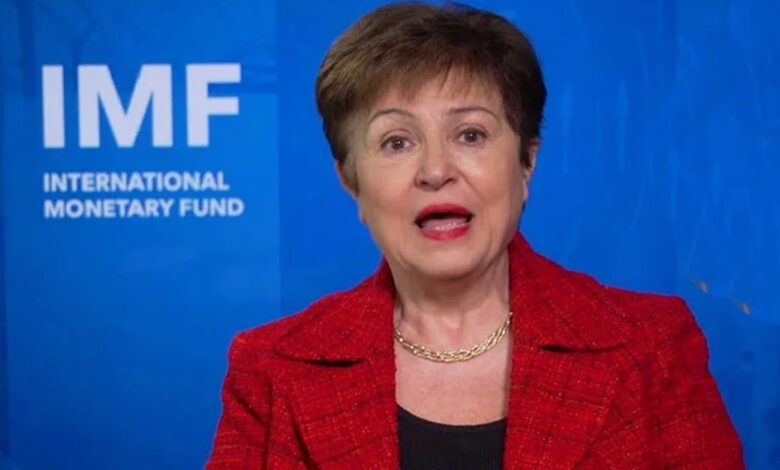IMF Chief Warns US Tariffs Pose Major Threat to Global Economy

Washington:The head of the International Monetary Fund (IMF), Kristalina Georgieva, has warned that the new tariffs imposed by the United States could pose a significant threat to the global economy. Speaking in a statement, Georgieva emphasized that at a time of slow economic growth, the US tariffs could exacerbate global economic challenges. She urged the United States to collaborate with its trade partners to avoid taking measures that could further harm the global economy.
**US President Trump Announces Heavy Tariffs on Poor Nations**
In a related development, US President Donald Trump signed an executive order on Thursday to impose retaliatory tariffs on various countries, including Pakistan, China, and Turkey. Trump stated that the new tariffs would be beneficial for the US economy. The President announced a 29% tariff on Pakistani products, effective from April 9. In addition, tariffs were set to be imposed on several other countries: 20% on the European Union, 34% on China, 24% on Japan, 26% on India, 17% on Israel, and 10% on the United Kingdom.
**Canada Announces Retaliatory Measures Against US Tariffs**
Several countries have condemned the US’s retaliatory tariffs, calling them unnecessary and harmful to global trade. Canadian Prime Minister Mark Carney announced countermeasures against the US tariffs, while Australia’s government labeled the tariffs as unwarranted. Additionally, the Prime Ministers of Italy and Ireland voiced their concerns, with Italy calling the US tariffs on the European Union “wrong” and Ireland urging the EU to respond appropriately.
**US Stock Market Suffers Sharp Decline Following Tariff Announcement**
Following the announcement of higher tariffs by US President Donald Trump, the US stock market saw a dramatic decline, dropping by 1500 points. According to Western media reports, the announcement has caused significant pressure on financial markets worldwide, with the US stock market experiencing its worst performance since the COVID-19 pandemic.




